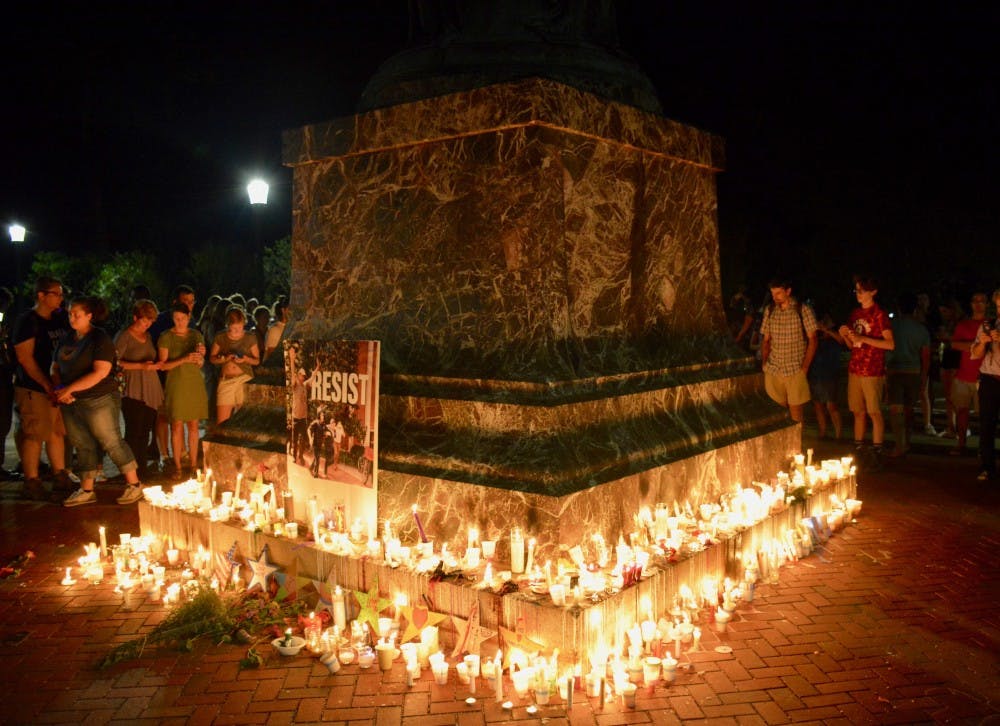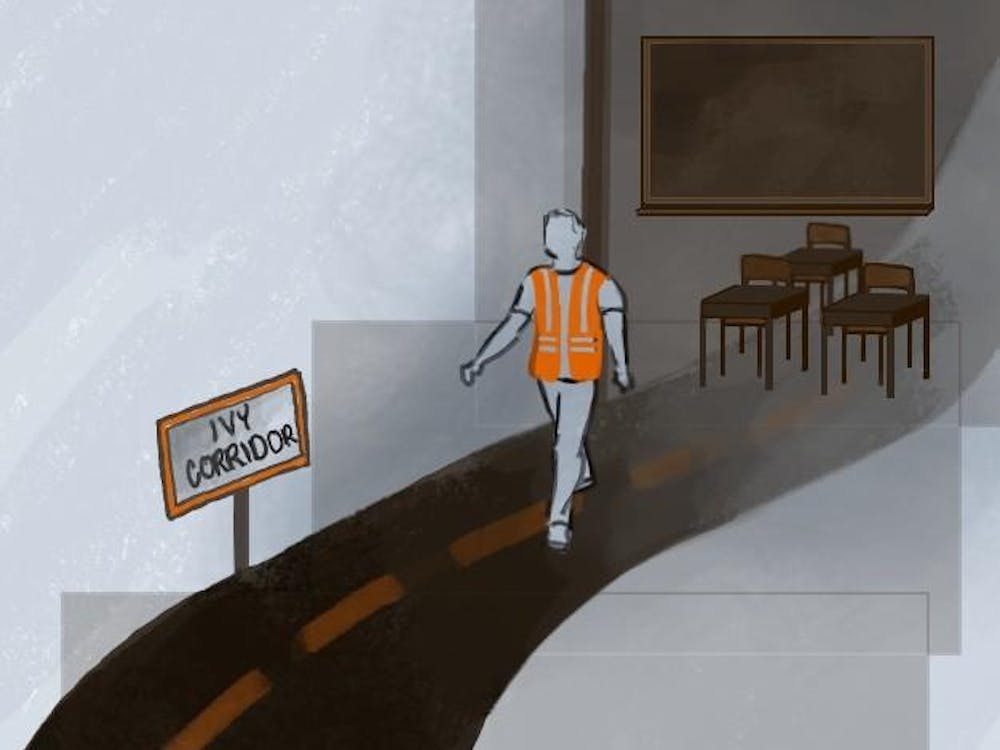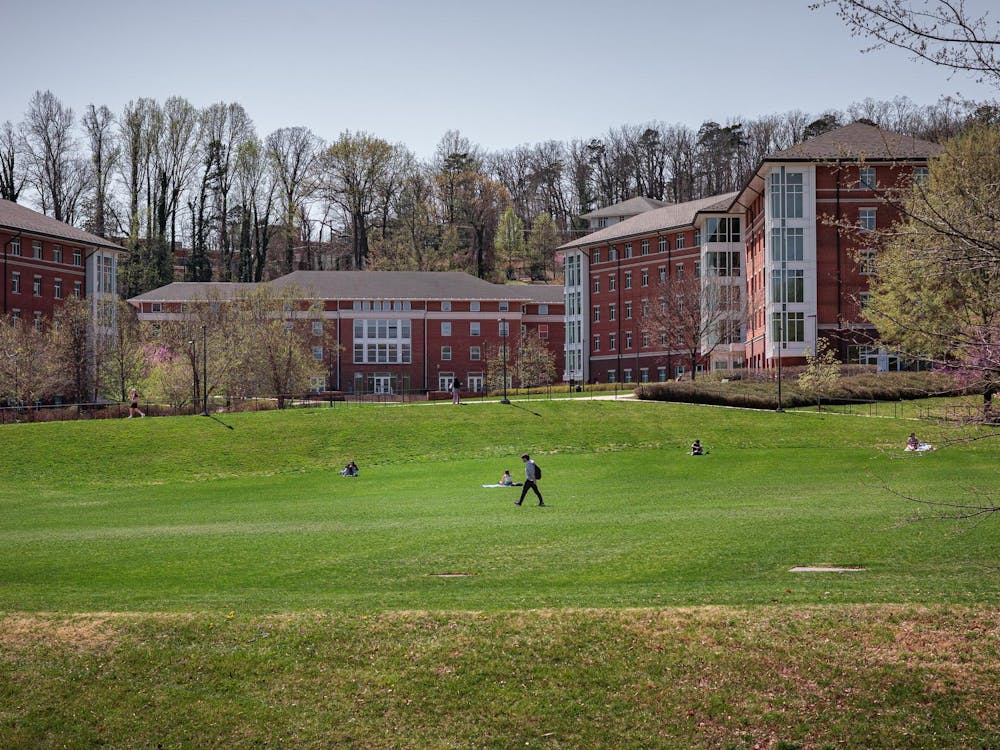If you are like me, you are still struggling with a range of emotions pertaining to the events of Aug. 11 and 12. As a faculty member in both Clinical and Community Psychology at the University, I thought it might be helpful to share my perspective on collective healing in the wake of the domestic terrorism we experienced at the hands of white supremacists.
My clinical psychology training reminds me of the inherent needs for safety and acceptance which we all experience, and my community psychology training informs me of the role our institutions and communities play in fostering and supporting those needs. One of the many things damaged over the past weekend was our trust in our institutions and our belief that they are committed to our safety. It must be said clearly and unequivocally that our University and community institutions failed us on Aug. 11 and 12 — the harm and destruction inflicted upon our students and community members by white supremacists was completely unacceptable and more should have been done to prevent these attacks. I start with this point because I believe that acknowledgement of these mistakes and sincere apologies from our leadership are critical to the healing process. This is an important step in rebuilding trust. It is my sincere hope that as we uncover more answers to our questions about the attacks, our University president, administrators, police and community leaders engage in critical self-reflection and publicly apologize for mistakes that were made. This will not only be useful for rebuilding trust, but also for ensuring that the same mistakes are not made in the future.
In regards to the emotions many of us are struggling with right now, I want to acknowledge that feelings of sadness, outrage, frustration, disappointment and fear are all normal responses to the egregious acts of hatred and violence enacted upon members of our community and the insufficient response by those charged with maintaining public safety. As individuals, we need to engage in self-care — getting enough sleep, eating well, spending time with loved ones and seeking counseling, if needed — and as a community, we need to come together to support each other. As intentional as the domestic terrorists were in dividing us, we need to be equally intentional in coming together and showing love and respect for each other. These events have convinced me that the only way for us to defeat hate, bigotry and white supremacy is for all of us to do our part. There is no room for apathy or neutrality. We all have to be more outspoken about our shared values of diversity, civility and inclusion and our intolerance of bigotry.
Thus, I suggest we channel our emotions into meaningful action. We must do more in our everyday lives to denounce hatred and bigotry wherever we encounter it, and we must demand more from our leaders to ensure that institutional policies and practices are aligned with our basic values. Acts of violence and intimidation are not free speech and there is no place for them in our University or the broader community.
Finally, healing will be facilitated by concrete actions that ensure that the domestic terrorism of Aug. 11 and 12 will not be repeated. This includes very basic and obvious efforts to improve physical safety as well as broad-scale efforts to improve the educational experience of University students. Our commitment to fostering global citizenship must include teaching students how to actively dismantle white supremacy and learn from history’s mistakes.
It is worth noting that Richard Spencer and Jason Kessler, leaders of the white supremacist events in Charlottesville, are University alumni. As an institution, we should ask ourselves what we can do to ensure that we are challenging — rather than nurturing or ignoring — the intellectually and morally bankrupt ideas advanced by white supremacists. To this end, I am inspired by the list of demands put forward by the Black Student Alliance, and co-signed by a variety of student organizations. In the face of terror, our students are leading the way to a better and brighter future. I call on my fellow faculty to join me in supporting our students as we work together to create the community and learning environment that we desire and they deserve.
Noelle Hurd is an Assistant Professor in the Department of Psychology.







